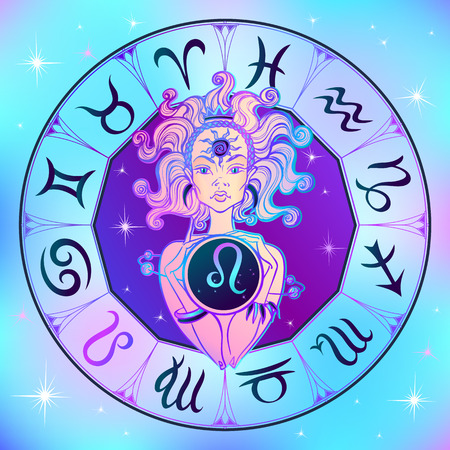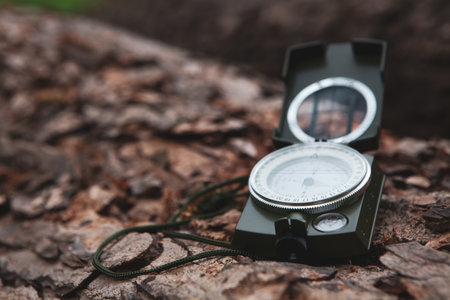Introduction: Horoscopes in British Culture
Horoscopes have maintained a distinctive place within British culture, weaving themselves into the fabric of daily life across the UK. Whether glimpsed in the lifestyle pages of The Guardian or discussed over a morning cuppa, star signs and astrological forecasts are more than just fleeting amusements—they are an enduring social phenomenon. From tabloid columns to radio segments, horoscopes are readily accessible and often referenced in casual conversations between friends or colleagues. The British public’s fascination with horoscopes persists regardless of age or background, suggesting that their appeal goes far beyond mere superstition. This widespread engagement raises intriguing questions about why so many Britons continue to check their horoscopes and how astrology has become such a familiar presence in everyday routines.
2. A Brief History of Astrology in Britain
The story of astrology in Britain is a fascinating one, stretching from ancient times to its present-day popularity. Understanding this history provides important context for the psychological appeal of horoscopes among the British public today.
Astrological beliefs arrived in Britain through a blend of cultural influences:
| Period | Key Influence | Notable Developments |
|---|---|---|
| Roman Britain (43–410 AD) | Introduction of classical astrology via Roman settlers | Horoscopes used by elites; blending with local spiritual beliefs |
| Medieval Era (5th–15th centuries) | Christian reinterpretations and Arabic astrological texts | Astrology taught at universities; used for medical and agricultural purposes |
| Elizabethan England (16th century) | Renaissance revival and humanist scholarship | Court astrologers like John Dee; astrology enters popular culture |
| Victorian Era (19th century) | Spiritualism and scientific curiosity | Astrology appears in newspapers; tension between scepticism and fascination |
| 20th Century to Present Day | Mass media and digital technology | Daily horoscopes become mainstream; astrology communities flourish online |
The British relationship with astrology has always been somewhat ambivalent. On the one hand, periods of official endorsement—such as royal courts consulting astrologers—have lent legitimacy to horoscope reading. On the other, there have been waves of scepticism, especially with the rise of scientific thinking during the Enlightenment and beyond. Despite these swings, astrology has maintained a consistent presence in British life, adapting to social changes and finding new ways to connect with people. This historical resilience underpins the deep-rooted psychological motivations for engaging with horoscopes that persist in contemporary Britain.

3. The Appeal of Horoscopes: Psychological Drivers
Horoscopes have long held a peculiar allure for people in the UK, cutting across age groups and social backgrounds. Several psychological factors underpin this widespread interest, making the daily or weekly horoscope reading almost a ritual for many Brits. One of the foremost drivers is curiosity. Humans are naturally inquisitive, especially when it comes to matters concerning their own lives or futures. Reading horoscopes offers a harmless way to satisfy this curiosity, inviting people to peer into what might be waiting just around the corner.
Another significant factor is the comfort that horoscopes can bring. In a society often described as reserved or stoic, having a small moment of reassurance can be quietly powerful. For some, horoscopes provide a sense of control or predictability in an otherwise uncertain world—a gentle nudge suggesting that things may turn out all right in the end. This emotional comfort is not to be underestimated, particularly during turbulent times or personal upheavals.
The desire for guidance also plays a crucial role. While British culture is known for its “stiff upper lip” and emphasis on self-reliance, there remains a subtle longing for advice—especially if it comes from an impersonal and non-intrusive source like a horoscope column in The Times or The Guardian. Horoscopes offer guidance without judgement, allowing readers to reflect on their choices and actions privately. It’s this blend of curiosity, comfort, and guidance that makes horoscopes so compelling for so many across the UK.
4. Social Context: Reading Horoscopes as a British Social Ritual
Horoscopes are more than just a personal curiosity in the UK—they are woven into the fabric of daily social interactions. From office kitchens to bustling pubs, discussing star signs has become an accepted form of British banter, often serving as a safe and light-hearted way to spark conversations or diffuse tension. In many cases, referencing horoscopes is less about genuine belief and more about participating in a collective ritual that promotes a sense of belonging.
The Icebreaker Effect
In typical British workplaces, where small talk can sometimes feel stilted, horoscopes provide an easy entry point for conversation. It’s common to hear colleagues ask, “What’s your star sign then?” before comparing daily predictions from the Metro or Evening Standard. This shared activity helps bypass awkward silences and invites everyone—believers and sceptics alike—into the conversation.
Pubs and Public Spaces
British pub culture thrives on inclusivity and shared experiences. Here, horoscopes might be read aloud for amusement or used to gently tease mates about their supposed personality traits. The communal reading of horoscopes often blurs the line between earnest interest and playful cynicism—a characteristic blend that defines much of British humour.
Common Social Settings Where Horoscopes Feature
| Setting | Typical Use of Horoscopes |
|---|---|
| Workplace | Ice-breaker during coffee breaks; light entertainment during meetings |
| Pubs | Group reading for fun; playful banter among friends |
| Family Gatherings | Comparing family members’ signs; gentle teasing across generations |
Building Community or Drawing Lines?
The ritualistic discussion of horoscopes also serves a dual function: it can foster camaraderie but occasionally reinforce group boundaries. For instance, shared jokes about “classic Geminis” can bond those in on the joke, while others might feel gently excluded if they’re unfamiliar with astrological stereotypes. Nonetheless, this dynamic reflects broader patterns in British social life—where subtle exclusion and inclusion are managed with humour rather than confrontation.
In summary, horoscopes in Britain play a unique social role, acting as conversational glue that holds together diverse groups. Whether believed or not, their value lies less in prediction and more in connection—helping people navigate the complex terrain of British sociability with a wink and a nudge.
5. Critical Thinking and Scepticism: The British Approach
One of the most distinctive features of British engagement with horoscopes is the interplay between critical thinking and a wry, playful sense of participation. In many British households and social settings, it is not uncommon to encounter a daily horoscope in the morning paper or hear someone jokingly reference their star sign at the pub. Yet, beneath this surface-level enjoyment lies a characteristic scepticism—a reluctance to take such predictions too seriously.
This blend of curiosity and doubt can be traced back to the broader British cultural value placed on rationality and intellectual independence. From an early age, Britons are encouraged to question received wisdom, analyse evidence, and maintain a healthy distance from claims that lack scientific substantiation. As such, while horoscopes are often read for amusement or as conversation starters, there is typically an undercurrent of irony or self-awareness in their consumption.
The British media often reflects this attitude by presenting horoscopes alongside puzzles or cartoons, subtly reinforcing the idea that these forecasts belong more to the realm of entertainment than genuine guidance. Even those who enjoy reading horoscopes may openly acknowledge their implausibility, treating them as a harmless indulgence rather than a source of truth.
This approach reveals much about public attitudes toward pseudoscience in the UK. While there is a willingness to engage with ideas that fall outside strict scientific scrutiny, this engagement is tempered by an ingrained scepticism and humour. Rather than rejecting horoscopes outright, many Britons choose to participate playfully, recognising both the psychological appeal and the limitations of such beliefs.
Ultimately, the British approach to horoscopes encapsulates a pragmatic balance: enjoying the ritual without relinquishing critical judgement. This nuanced perspective allows individuals to find meaning or comfort where they wish—while remaining grounded in the value of evidence-based thinking.
6. Conclusion: The Future of Horoscopes in the UK
The enduring appeal of horoscopes across Britain reveals much about the nations collective psyche and its evolving cultural landscape. As we move further into the digital age, horoscopes have seamlessly transitioned from the back pages of newspapers to personalised apps and social media feeds. This shift reflects not only technological progress but also an adaptation to society’s changing needs for connection, reassurance, and self-understanding.
With British readers increasingly seeking instant insights and tailored advice, the accessibility of astrology online has made it more relevant than ever. The communal experience once found in discussing star signs at work or over tea now takes place in group chats and comment threads, demonstrating how the tradition morphs yet persists. Rather than fading into obscurity, horoscopes are being reimagined through memes, podcasts, and influencers who speak directly to the values and humour intrinsic to British culture.
This ongoing evolution suggests that horoscopes will remain a fixture in British life—not just as entertainment, but as a mirror reflecting our desires for meaning and belonging. In a society facing rapid change and uncertainty, the psychological comfort provided by astrology continues to resonate. Whether approached with scepticism or belief, reading one’s horoscope remains a subtle act of self-reflection woven into the fabric of everyday British experience.


